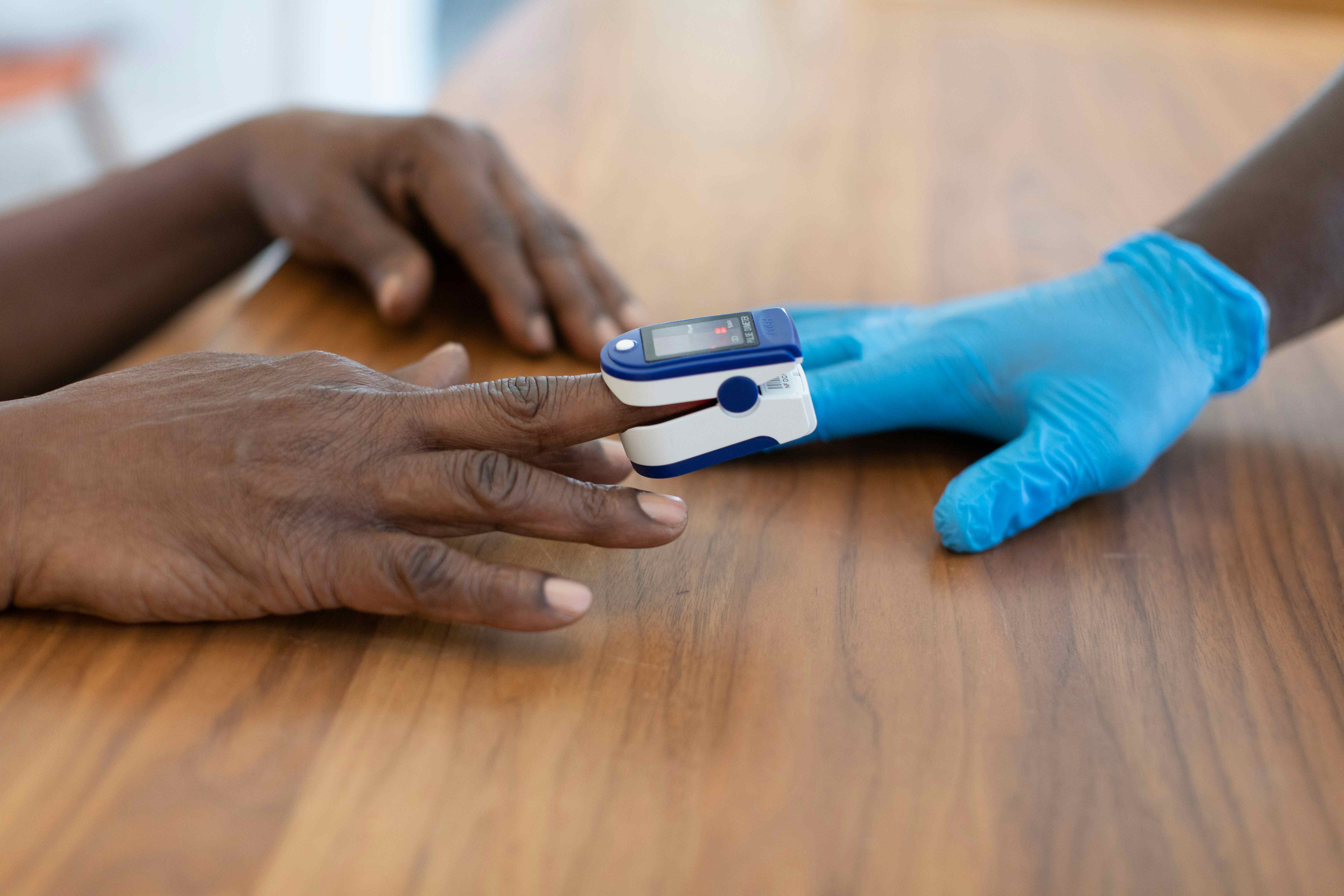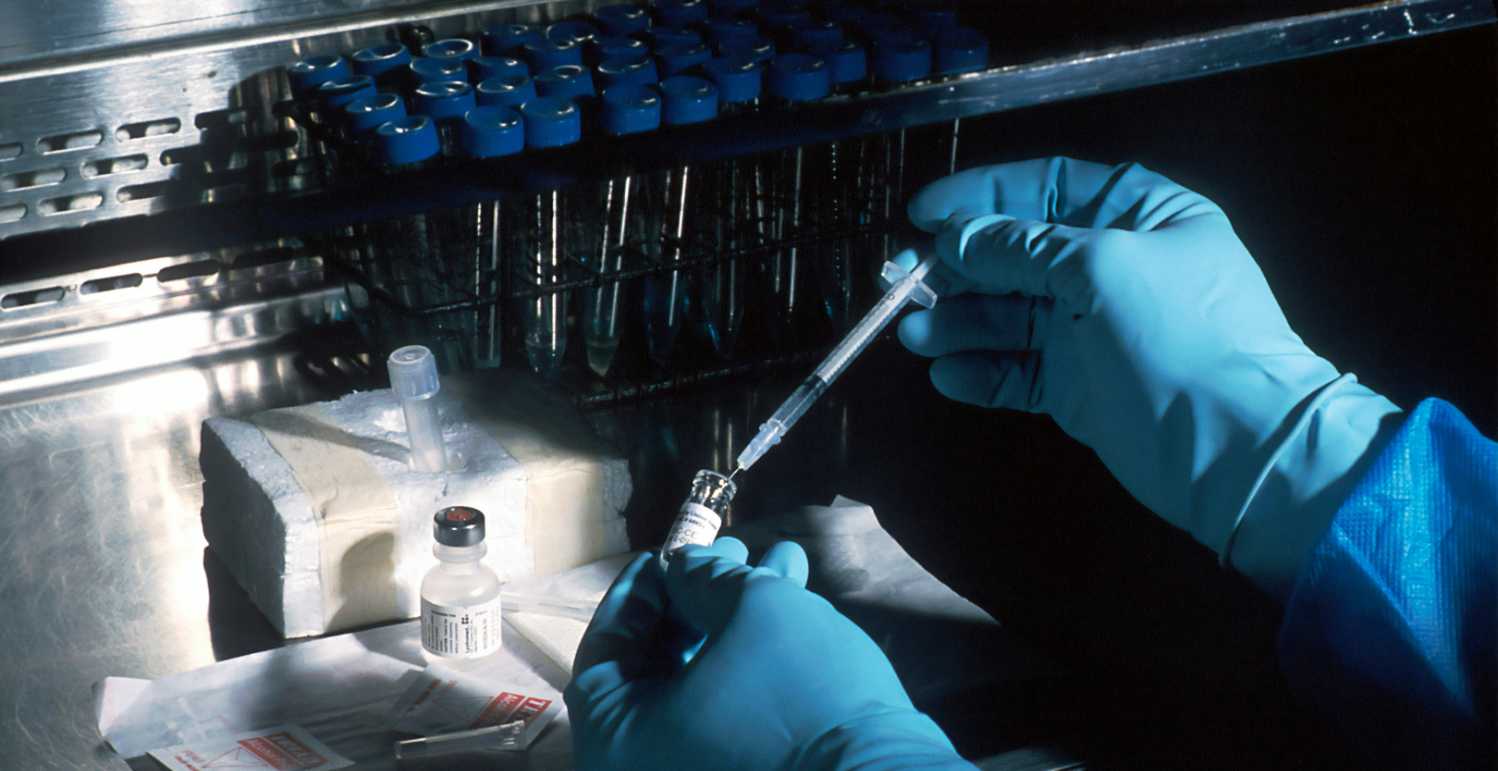Insights
Critical Biometrics Jobs for Advancing Future Projects
01 Mar, 202410 minutesBiometrics is a growing multi-disciplinary field that is increasing human and technological ...

Biometrics is a growing multi-disciplinary field that is increasing human and technological development. Combining biometrics and life sciences has enabled innovative evolution, providing medical professionals and researchers with the technology to analyse raw trial data. This data is used to support the development of cutting-edge medical treatments.
The increasing number of biometrics jobs make it possible to streamline the clinical trials and data interpretation process by applying technological tools. By making data more accessible, it is simpler for medical professionals to utilise. Accurate, accessible and well-organised data is critical to developing gene therapies and rare disease treatments.
This guide will explore four key roles that are pivotal for industry advancement and the accessibility of clinical data. We will also discuss the importance and impact of these roles concerning industry development overall and assess the value of these roles to your future trials.
These include:
- Biostatisticians
- Bioinformaticians
- Statistical programmers
- Clinical data managers
Biostatisticians:
Vital medical research depends on the success of clinical trials to provide accurate statistics for data interpretation. Successful clinical trials are the key to biometric development, especially in gene therapies and rare disease treatments, as this is where the vast majority of data used develops from. Biostatisticians are at the centre of this, playing a significant part in all areas of the clinical trials process.
Biostatisticians are responsible for the design, analysis and interpretation of clinical trials. Biostatisticians strive to perfect every aspect of the process to ensure the success of clinical trials and the accuracy of clinical data. Their job functions typically include:
- Calculating and justifying the clinical trial participant numbers
- Preparing Statistical Analysis Plans (SAP)
- Creating randomised schedules to eliminate clinical bias
- Writing reports dedicated to clinical data interpretation and clinical trial results
Biostatisticians ensure that the study design is robust, the data analysis is statistically sound, and the results are reliable.
Importance & Impact:
Clinical trials require appropriate planning, analysis, and biometrics for success. Biostatisticians apply specific scientific principles to the clinical trial process, aiming to improve every aspect of the study, from participants to data reporting. They have extensive responsibilities involving numerous clinical trial management and organisation aspects.
Biostatisticians use precise calculations and an educated understanding of both the biometrics and clinical trial processes to formulate the correct statistical measures for trial success.
A biostatistician can bring trial stability, structure, successful market authorisation, and data analysis to a clinical research and trial team. The combination of statistics and technologies biostatisticians use can eliminate clinical trial data errors and clinical bias, leading to more efficient clinical data.
Statistical Accuracy
Biostatisticians bring expertise in applying perfected and organised statistical methods, increasing the credibility of trial results.
Clinical trials are subject to many costly human errors that slow the development of medical treatment. Statistical and mathematic applications to the clinical trial organisation process and analysis reduce the costs associated with failed or inaccurate clinical trials by limiting human error.
Precision in Design
Streamlining and improving the overall efficiency of clinical trials is paramount to developing new cell and gene therapies and other innovative medical treatments. Biostatisticians contribute to the precise design of trials, optimising sample sizes and statistical power to ensure results are as accurate as possible, enabling treatment development.
The design of participant randomisation systems and procedures minimises clinical bias, saving time and resources while working within control variable regulations.
Statistical Analysis Plan
The creation of a Statistical Analysis Plan (SAP) is a prime example of the value that biometrics jobs can bring to clinical trials and life sciences. This technical document plans and outlines all planned statistical methods, including how all qualitative and quantitive data will be collected, handled and interpreted. Biostatisticians typically create this document, with participation from other biometric professionals.
For any form of randomised clinical trial, a SAP is a document of crucial importance. Data and ethical concerns are common when conducting clinical trials, especially with more data becoming digitalised within the biometrics process. An organised and detailed SAP plan can address pre-trial concerns surrounding the trial process and data usage.
The benefits of a well-structured SAP include:
- Readability and accessibility of clinical trial data
- All team members use the same methodology to produce and analyse the study, promoting consistency and fewer errors
- Trial regulations and ethical standards are adhered to, including ICH E3 and E9 guidelines
Biostatisticians play a significant part in the formulation of the SAP, ensuring the overall quality of the clinical study as well as the accuracy of its data.
Data Interpretation
Biostatisticians also help interpret data and design the parameters and structure of clinical trials. Working with their colleagues, they incorporate their expert statistical knowledge into drawing relevant, meaningful conclusions from raw data, enabling informed decision-making.
Although not the primary role of biostatisticians, statistical methods are used to explore any industry-relevant patterns within the clinical data. Using specific statistical analysis methods assists them in bridging the gap between clinical and statistical analysis.
Areas to Consider:
Resource Intensive: Employing highly skilled biostatisticians with potential cost implications can be intensive to resources.
Dependency: The project may depend on the availability and expertise of a limited number of biostatisticians. Training and developing junior biostatisticians may benefit projects struggling with dependency issues.
Biostatisticians are essential in biometrics despite the cost associated with their employment. Without these skilled professionals establishing well-structured clinical trial processes, the data needed to develop biometric technologies would not meet the required quality.
Bioinformatician
Biometrics jobs usually entail many responsibilities from the start to the end of the clinical trial process. For Bioinformaticians, their multi-disciplinary field is now so significant to the clinical trial process that their experience is needed during most trial stages.
Bioinformaticians use a combination of biological, statistical and computer science knowledge to understand and interpret data. They work within clinical trials to assess the efficiency of the data from the process, enabling more accurate data to be harnessed for essential developments.
From designing studies and data collection to the application of statistical data validation methods to summarise data, bioinformaticians are essential for growing clinical trial success.
Importance & Impact:
The raw data from clinical trials must be sorted and distributed into accessible systems that are simple to understand. Bioinformaticians assist in the design of these systems. Bioinformaticians, specialists in their field, seek to find patterns with masses of clinical trial data. Their role demands an understanding of all aspects of data that is created in an attempt to develop new projects and technologies.
To the biometrics industry, their importance is invaluable. From the analysis of geomatic data to molecular and clinical data integration, bioinformaticians’ positive reach is spread across the project in its entirety.
Data Analysis and Integration
In most scenarios, biometric projects struggle with sorting through and making sense of the vast amounts of data created. The inability to recognise meaningful patterns within the data can leave key results missed and cutting-edge treatments failing to emerge.
A Bioinformatician uses bioinformatic and statistical principles to integrate relevant data from various domains at all stages of clinical trials and the project as a whole. They combine, analyse and report data in an accessible format using visual data presentation tools and categorisation.
Data Management and Precision
Data management is an ongoing process for bioinformaticians, collaborating with other biometrics professionals to ensure all data is standardised for effective collaboration.
Improving the way that projects process, store, and integrate data correctly ensures that professionals utilising that data can collaborate seamlessly on important biometrics projects as they develop.
Areas to Consider:
- Interdisciplinary Skills: To succeed in this biometrics job, Bioinformaticians must be proficient in various skills, technologies and information from multiple disciplines. When employing biostatisticians for your next biometrics project, ensure all candidates are correctly qualified.
- Technology and Resource Costs: Along with the costs associated with employing a qualified biostatistician, any large-scale data analysis or creating new procedures may be costly and time-consuming.
Statistical Programmers:
Statistical programmers are vital for biometrics within life science organisations. These skilled professionals are experts in managing and analysing the large amounts of data generated in gene therapy trials. With a focus on accessibility, statistical programmers ensure that the data collected during clinical studies is organised efficiently using Statistical Analysis Systems.
Most biometrics jobs are data-focused, but for statistical programmers, the future progression of biometric technologies is widely dependent on their ability to harness their programming skills to continue developing accessible databases. In most cases, statistical programmers write programs to organise voluminous data systems. This can include developing programs and organisational strategies that streamline clinical data into visual and accessible methods to inform healthcare decisions.
Importance & Impact:
The biometrics industry's complex nature, along with a continued reliance on technological development, highlights the importance of biometrics jobs overall. Skilled and experienced statistical programmers are no exception to this, continuously proving their vitalness in data transformation, management and integration.
Accessible and accurate data is vital in the clinical trial process, encouraging faster decision-making and reducing data errors. Biostatisticians can also assist in lowering any costs related to inefficient data interpretation procedures and establishing accurate data aligned with regulatory requirements.
Data Transformation and Management:
Statistical programmers strive to manage data efficiently to achieve a fully efficient data analysis. They specialise in converting clinical data in its rawest form to meaningful information. The accessibility surrounding this data is an essential element in the development of crucial cutting-edge life science technologies.
Without data managed and interpreted by statistical programmers, other biometrics jobs like clinical data managers and biostatisticians would fail to fulfil their data interpretation job requirements.
Integration
In recent years, the speed of COVID-19 vaccination development was partially due to statistical programmers’ utilisation of SAS software and other programming languages. Combined with these industry technologies, their programming skills enable Statistical programmers to integrate clinical data from various sources, providing a complete view of trial outcomes.
Report Generation
Reports are the transportation method for information across most sectors, but for biometrics, reports that correctly communicate easily accessible clinical data are incredibly significant to industry development.
Statistical programmers must communicate complex and raw data to other biometric team members and stakeholders. They contribute to the creation of clear and accessible reports that contain readable clinical data with meaning, assisting other industry professionals in interpreting and translating the data to make more informed healthcare decisions.
Areas to Consider:
- Technical Dependencies: The project may face challenges if skilled statistical programmers lack data or programming skills, leading to potential delays.
- Learning Curve: The integration of developing technologies or tools may require the team to adapt and learn, initially slowing down the process.
Clinical Data Managers:
Clinical Data Managers are responsible for overseeing the collection, validation, and integration of data from clinical trials. Their role becomes even more significant in advanced therapies and rare diseases, where data integrity is essential for developmental success.
Clinical data managers use a combination of statistical and mathematical methods to analyse the accuracy, reliability and accessibility of clinical trial data. Their primary responsibilities are based on ensuring all data is correct, reliable and accessible. This often includes quality assurance for all data within the trial. In addition, clinical data managers monitor all other biometrics jobs throughout to observe the pace and accuracy of all clinical data.
Importance & Impact:
The role of a clinical data manager has evolved significantly in recent years, with more reliance on clinical data managers to determine the success of data than ever before. Previously, their role was limited to monitoring data accuracy throughout the process. However, this has developed into a specific clinical trial stage due to the increasing importance of data for medical advancements.
While all biometrics jobs aim to either design trials, interpret data, or make data more accessible, clinical data managers’ roles in clinical trials encompass all areas of data management. From data standardisation and traceability to data system design and regulation compliance, clinical data managers are vital to the future of life science research.
Data Integrity and Privacy
Clinical Data Managers ensure the integrity and accuracy of trial data, which is critical for regulatory compliance. The clinical data managers are responsible for certifying that all trial data comply with the regulatory standards and guidelines throughout the trial process.
They implement specific procedures that maintain data accuracy and integrity, limiting the possibilities of trial inaccuracy. Through data quality checks, clinical data managers prevent missed information and any relevant resource costs associated with repeating the trial.
Keeping all trial data secure is essential and legally relevant to GDPR and HIPAA regulations. To promote this and prevent the mishandling of personal and private information and data-related complications, clinical data managers collaborate with other biometrics jobs to establish secure measures. This includes data storage, access protocols and transmission data.
Standardisation and Efficiency
As managers, these professionals formulate data standards for most randomised trials. They contribute to standardising data collection methods and improving consistency. Their seniority and experience working with data mean they are perfectly equipped to create data management plans and entry procedures. Clinical data managers often utilise real-time analytics and other tools to maximise data monitoring efficiently.
Clinical data managers also ensure that all data comply with the Clinical Data Interchange Standards Consortium (CDISC), which is essential for a successful trial. Well-structured data standards that follow regulations can contribute to a faster, regulated, and consistent clinical trial overall. Effective data management streamlines processes and enhances the efficiency of the overall project.
In an industry where data is increasingly diverse and voluminous, clinical data managers and their knowledge become essential in harnessing the full potential of big data analytics necessary for treatments, therapies and other data-lead developments.
Areas to Consider:
- Data Security Concerns: With the increasing focus on data privacy and security, there may be challenges in managing sensitive information that one clinical data manager may struggle to address in a larger clinical trial.
- Resource Demands: Implementing a well-structured data management process may require additional resources, which can be financially costly for a clinical trial.
Biometrics Jobs Supporting Research Development: Final Thoughts
The continuously evolving field of biometrics is playing an essential role in advancing life sciences, particularly within clinical trials, gene therapies, and rare disease treatments. The increased desire for innovative technologies highlights the need for a well-structured project team to ensure an accurate and streamlined clinical trial process.
All four biometrics jobs listed contribute to the acceleration and success of biometrics projects. Their expertise ranges from ensuring statistical accuracy and precision in trial design to the accurate interpretation of data and the streamlining of clinical trial structure. Though the roles and their contribution to the industry differ, they all work to inform decision-making in the development of biometric technologies.
Integrating biometrics experts across various roles is essential when aiming to utilise the power of data and advance biometric technologies. As the industry evolves, creating a skilled biometrics team will ensure success in future projects and facilitate innovative medical treatment development.
Looking To Expand Your Biometrics Team?
Our friendly consultants are experts in biometric recruitment and are committed to connecting you with the top life science talent. We understand that your project’s hiring needs will be unique, which is why our globally growing recruitment consultancy service is tailored to you.
Contact us today to discuss your hiring needs with our industry specialist consultants.



